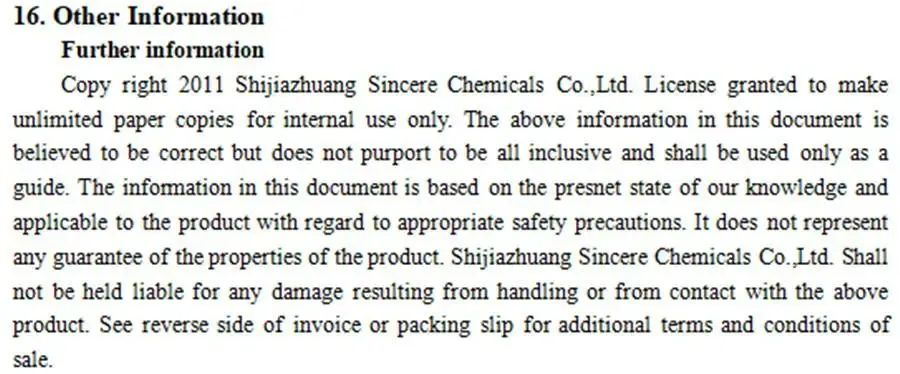carboxy methyl cellulose use


In the industrial sector, CMC’s role cannot be overstated, especially in the production of detergents and textiles. Within detergents, CMC prevents soil from re-depositing on fabrics during the washing process, enhancing the cleaning power of detergents and ensuring brighter, cleaner fabrics after each wash. The textile industry uses CMC to enhance water retention in fibers, facilitating smoother dyeing and printing processes. Such applications highlight CMC’s versatility and efficiency in industrial processes. Despite its widespread use, the sustainability of CMC is an often-discussed topic. Derived from cellulose, a natural component found in plant cell walls, CMC is biodegradable, aligning with increasing global demands for environmentally friendly products. Its production and disposal have minimal environmental impact, making it an attractive option for industries striving to reduce their ecological footprint. However, as with any additive, regulatory compliance is paramount. The use of CMC is governed by rigorous standards across different industries, ensuring that its applications are both safe and effective. It is crucial for manufacturers to remain informed about these regulations and employ CMC in a manner that aligns with both industry standards and consumer health requirements. In conclusion, the multifaceted applications of carboxy methyl cellulose underscore its indispensable role across numerous industries. Whether improving the texture of foods, enhancing drug delivery in pharmaceuticals, or ensuring the efficacy of personal care products, CMC continues to be a critical player. Its balance of performance, safety, and sustainability positions it as a trustworthy additive for manufacturers and consumers alike, promising a future enriched with innovation and enhanced product quality.
Post time: Янв . 26, 2025 01:54


















